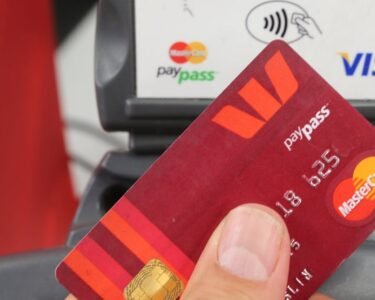Last Updated:
Factors like low credit scores, unstable income or application errors can impact your credit card eligibility.

Top lenders are offering reward programs, cash back and EMI facilities also.
Credit cards are increasingly becoming a very popular payment tool in India for online shopping, dining out or even booking a vacation. This is evident from the Reserve Bank of India’s data, which suggests credit card spending in India rose over 15% in FY25 to a record Rs 21.16 lakh crore, up from Rs 18.32 lakh crore in the previous fiscal.
Top lenders are offering reward programs, cash back and EMI facilities to attract more users towards credit cards. Seamless mobile app integration and quick approvals are other features contributing to their rising demand.
While banks have made credit card approvals quick and convenient, some applicants still face rejection. This can happen due to various factors such as a low credit score and unstable income, among other reasons.
To improve credit card eligibility, individuals should assess the factors affecting their creditworthiness. Addressing the underlying issues can significantly enhance approval chances, and you are likely to get your card with maximum benefits.
What Could Be Impacting Your Credit Card Eligibility:
Low Credit Score: Before issuing you a card, banks will assess your credit score to determine risk. It is important to keep your score at least above 700 to reflect your creditworthiness.
Unstable Income: Lenders are hesitant to issue cards to borrowers who do not have steady income. Irregular or low-income criteria raise concerns about your ability to repay dues, leading to rejection.
High Existing Debt: If you already have multiple loans, banks may deny your credit card application due to repayment risk.
Loan Defaults: Your credit score is impacted by late payments and defaults on existing loans. This can reduce your chances of being approved for a new credit card.
Too Many Credit Applications: One must avoid formally submitting too many credit card applications simultaneously. This can impact your credit score and work against your favour.
Errors in Application: Incorrect personal, financial or employment details can lead to immediate rejection. Be careful and transparent while submitting your information in the application.
Limited Credit History: If you are a first-time applicant, your limited credit history could make approvals difficult. You may instead try options like fixed-deposit backed credit cards to use the funds and be able to build your credit score.
Job Instability: To assess financial stability, lenders look at factors such as your employer reputation, job switches, among other things. Perceived financial stability is an important factor in convincing banks to issue a credit card.
High-utilisation ratio: If you’re using a large portion of your available credit limit across multiple cards, it signals to lenders that you may be over-reliant on credit.
Some other factors include KYC issues and a high debt-to-income (DTI) ratio, which measures the percentage of income used to service debt obligations.
A team of writers and reporters decodes vast terms of personal finance and making money matters simpler for you. From latest initial public offerings (IPOs) in the market to best investment options, we cover al…Read More
A team of writers and reporters decodes vast terms of personal finance and making money matters simpler for you. From latest initial public offerings (IPOs) in the market to best investment options, we cover al… Read More
view comments
- Location :
Delhi, India, India
- First Published:




